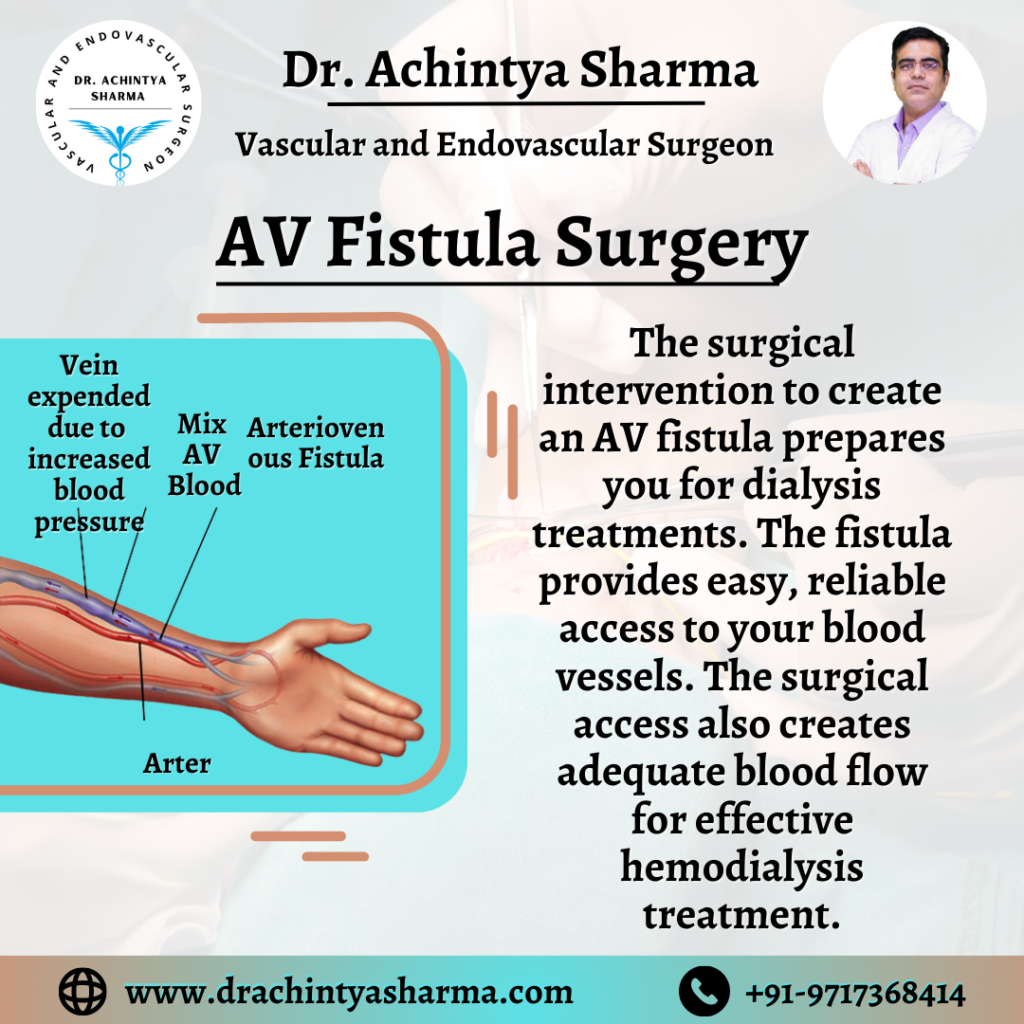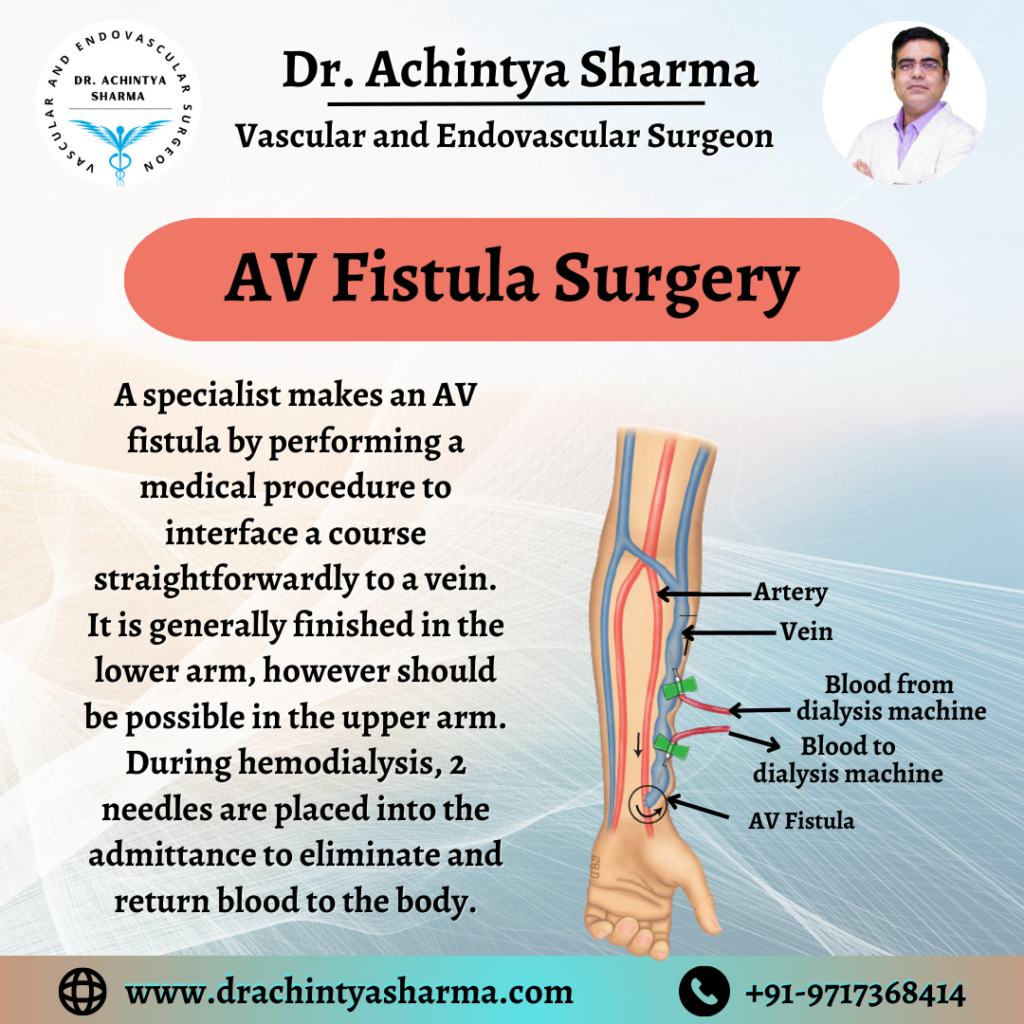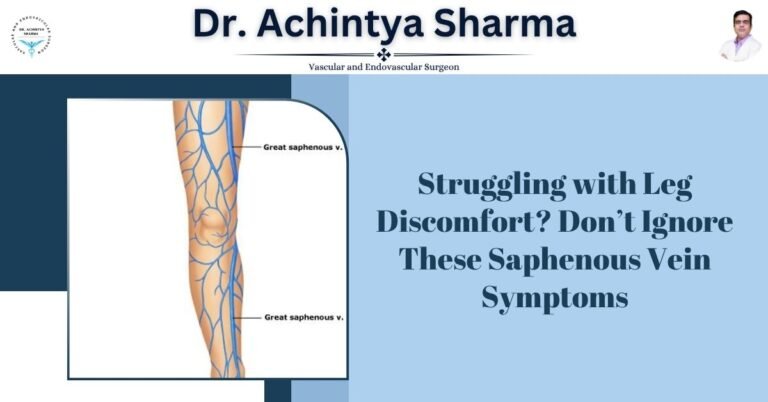AV fistula surgery is crucial in providing long-term hemodialysis access for individuals with end-stage renal disease (ESRD). It involves the creation of a durable connection between an artery and a vein, typically in the arm, to facilitate the efficient removal and return of blood during dialysis treatments. This comprehensive guide aims to provide a deeper understanding of AV fistula surgery, covering its purpose, the surgical procedure, preoperative and postoperative aspects, and the importance of proper care and maintenance for optimal outcomes.
What Is an AV Fistula?

An AV fistula, also known as an arteriovenous fistula, is a surgical connection created between an artery and a vein. It is typically performed in individuals requiring long-term hemodialysis treatment for end-stage renal disease (ESRD) or kidney failure.
During AV fistula surgery, an artery, commonly in the arm, is connected directly to a nearby vein. This connection allows arterial blood, which carries oxygen and nutrients, to flow directly into the vein. As a result, the vein becomes larger and stronger over time due to the increased blood flow. This strengthened vein is then used for repeated needle insertions during hemodialysis sessions.
Overall, AV fistula surgery is a vital procedure for individuals with ESRD who require hemodialysis, providing a reliable and long-lasting vascular access point for their ongoing treatment.
What to Expect Before Surgery
Before AV fistula surgery:
Consultation and evaluation: You will have a consultation with your healthcare team, which may include a vascular surgeon, to discuss the need for AV fistula surgery. They will evaluate your medical history, perform a physical examination, and may order diagnostic tests to assess your blood vessels.
Preoperative preparations: You may be advised to refrain from eating or drinking for a certain period before the surgery. Your healthcare team will provide specific instructions on medications you should take or avoid before the procedure. It is important to follow these instructions closely.
Anesthesia discussion: You will discuss with the anesthesia team to determine the appropriate type of anesthesia for the surgery. This may involve general anesthesia or local anesthesia with sedation
What to Expect After Surgery
After AV fistula surgery:

Recovery in the hospital: After the surgery, you will be monitored in a recovery area or room for a few hours. The medical staff will assess your vital signs, check the blood flow in the newly created fistula, and ensure you are comfortable.
Pain management: You may experience pain or discomfort at the surgical site. Your healthcare team will provide appropriate pain management options, including oral pain medications or local anesthesia techniques.
Activity restrictions: You will receive specific instructions regarding using and caring for your AV fistula. It is crucial to follow these instructions carefully to promote proper healing. You may be advised to avoid heavy lifting, strenuous activities, or excessive pressure on the fistula area.
Follow-up appointments: You will be scheduled for follow-up appointments with your healthcare team. These appointments are essential for monitoring the healing process of the AV fistula, checking for any complications, and ensuring proper functionality.
Dialysis initiation: Once the AV fistula has healed and matured, it will be ready for use as a vascular access point for hemodialysis. Your healthcare team will guide you on when to begin dialysis treatments and how to properly care for the AV fistula during dialysis sessions.
Long-term care: Regularly monitoring the AV fistula’s function and overall health is crucial. You will be advised on maintaining good hygiene, protecting the fistula from trauma, and recognizing signs of infection or complications. Proper care and regular follow-up appointments will help ensure the longevity and functionality of the AV fistula.
Conclusion
AV fistula surgery is a vital procedure for individuals with end-stage renal disease (ESRD) requiring hemodialysis. By creating a durable connection between an artery and a vein, this surgery establishes a reliable access point. Throughout this guide, we explored the purpose, procedure, and preoperative and postoperative aspects of AV fistula surgery. Proper care, regular follow-up, and adherence to medical advice are crucial for maintaining the functionality of the AV fistula.




